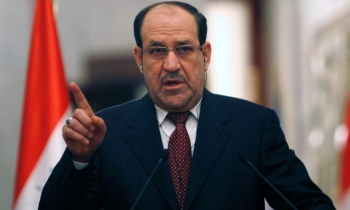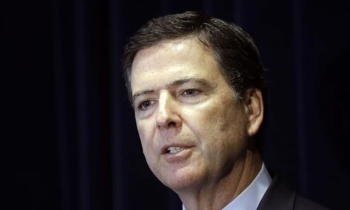As the White House waits to see whether any of its top officials will be indicted in connection with the leaking of a CIA officer's name, The New York Times is engaged in an extraordinary dispute with one of its reporters over her work on the story.
"I've never seen anything quite like this," Los Angeles Times political writer Ron Brownstein said Sunday on CNN's Reliable Sources.
Times reporter Judith Miller, who spent 85 days in jail – with the support of her editors – before agreeing to testify about conversations she had with Vice President Cheney's top aide, has been skewered by her own newspaper for three consecutive days:
Friday, Times editor Bill Keller sent his staff an e-mail stating that Miller "seems to have misled" the newspaper's editors by not telling them that she had been among several journalists told about the CIA officer by Bush administration officials. He also wrote that the Times should have moved more quickly to correct problems in stories reported by Miller in 2002 and 2003 about whether Iraq had weapons of mass destruction.
Saturday, Times columnist Maureen Dowd wrote that if Miller, who is now on leave, follows through with a pledge to return to the newspaper and report about threats to the nation's security, "the institution most in danger would be the newspaper in your hands."
Sunday, Times Public Editor Byron Calame suggested it would be better if Miller does not come back. "The problems facing her inside and outside the newsroom will make it difficult for her to return to the paper as a reporter," Calame wrote. He said a Times story published Oct. 16 had laid bare a "disturbing" revelation about Miller: "the journalistic shortcuts that (she) seems comfortable taking." Among those, he said, were her admission that she had once agreed to refer to Cheney's top aide, Lewis "Scooter" Libby, as a "former Hill staffer" if she used any information from one of their conversations.
Miller, who never wrote a story about CIA officer Valerie Plame, defended herself in the Times. She was quoted as saying that Keller had made several "seriously inaccurate" statements and that she did not intend to mislead editors by not telling them – after being asked – that she had been among the journalists who had discussed Plame with administration officials.
"I was unaware that there was a deliberate, concerted disinformation campaign to discredit (Joseph) Wilson," Plame's husband, so she did not think questions from editors applied to her situation, the Times quoted Miller as saying.
One of Miller's attorneys, Robert Bennett, was quoted in the Washington Post Saturday as saying he's concerned "that there are people trying to even old scores and undercut her as a heroic journalist."
Plame was unmasked by columnist Robert Novak in July 2003, who cited "two senior administration officials" as his sources. Plame is the wife of former ambassador Joseph Wilson, who was a vocal critic of Bush's Iraq policy. For nearly two years, special counsel Patrick Fitzgerald and a grand jury have been investigating the leak.
The Times' editorial page and champions of the First Amendment had made Miller's jailing a cause célèbre, using it to make the case for a federal "shield law" to help journalists protect sources.
But "the First Amendment and arguments for it aren't in danger" because of questions about her reporting, says Jack Shafer, media critic at online magazine Slate. "Judith Miller has destroyed her own career and damaged the New York Times," Shafer says. "She's ruined. The Times is damaged but will be OK. The First Amendment will be fine." None of the arguments for or against a shield law, he predicted, will be affected, because Miller's case and her actions are unique.









